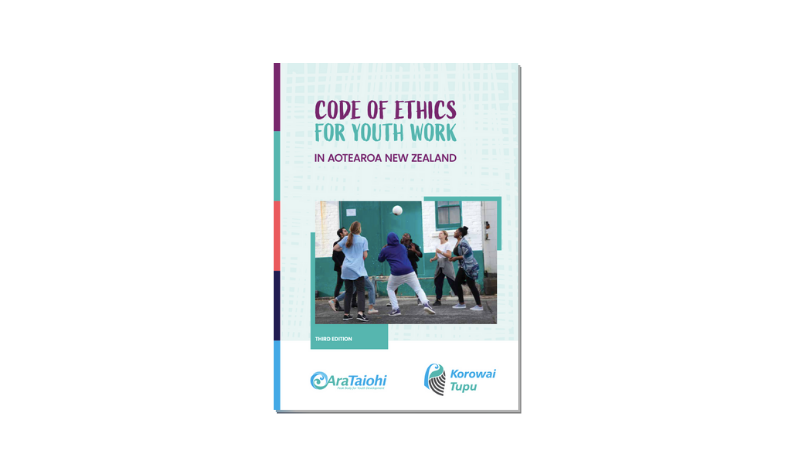With young people we understand and affirm their whakapapa
Whakapapa includes the genealogies and stories of descendants and their connection to whenua (land) for all cultures. It acknowledges our shared histories and the impact of colonisation in Aotearoa. Acknowledging the whakapapa of young people means, in their own way and in their own time, exploring how these histories influence their lives right now. Young people are supported to embrace the journey to find their tūrangawaewae, their place to stand.
Ko ngā uri koe o Tiki
‘You are the descendants of Tiki’
Tiki is the personification of procreative energy and is usually described as progenitor of the human race, which is sometimes described as Te Aitanga a Tiki
(Mead & Grove, 2004)
6. Ko au, ko koe, ko tātou
6.1 Youth workers acknowledge the importance of whakapapa and act to understand their own cultural heritage.
6.2 Youth workers acknowledge and support young people to explore their own history and how this influences their lives.
6.3 Youth workers recognise and honour the importance of the relationship with whakapapa through whānau, hapū and iwi when working with Taiohi Māori.
6.4 Youth workers actively reflect on and develop their own identity and those of the young person that they work with, and be aware of how these relationships relate to each other.
6.5 Youth workers recognise and understand how dominant social systems tend to systemically oppress people who hold certain identities and privilege others, and consider how this affects the young person and the Youth Work relationship.
6.6 Youth workers understand our sector, the whakapapa of Youth Work, Korowai Tupu, and that of the context in which they practice Youth Work.
Note: The heading for clause 6 is in te reo only as this best summarises the clause and does not need to be translated fully into English.
7. Te whakapapa o Aotearoa | Understanding Aotearoa
7.1 Youth workers understand the history of Aotearoa that begins with Tangata Whenua.
7.2 Youth workers acknowledge the relationship between Tangata Whenua and Tangata Tiriti in Aotearoa.
7.3 Youth workers acknowledge the particular impacts of colonisationfor Iwi Māori, and recognise the ongoing implications for systemic power relationships between different groups in Aotearoa.
7.4 Youth workers take personal responsibility to participate in ongoing training of Te Tiriti o Waitangi, Te Reo me ona Tikanga Māori, and apply this knowledge to their lives.
7.5 Youth workers acknowledge that there is a unique relationship between Tikanga Māori and ethical youth development practice in Aotearoa.
NextHononga (Taiohi)